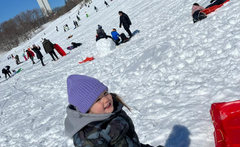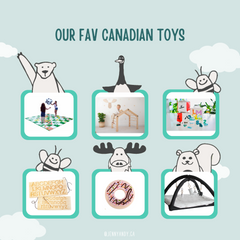
Your baby has turned one, boy does time fly! Soon, she’ll be entering toddlerhood, crawling anywhere and everywhere and even starting to or trying to walk and talk.
At this age, your baby will be experimenting with control, testing your limits and discovering her own. Exploring the boundaries established by your rules and her own physical and developmental limits will take up most of her time for the next few years.
As she begins to walk, she’s bound to enter into forbidden situations. Remember, she’s not trying to be mischievous on purpose and still counts on you to show her what’s OK and what’s not, and she’ll look to you for reassurance and security.
Keep in Mind
Keep in mind that the actual age when a typically developing child reaches a milestone really can vary. Each child develops in their own unique way, so there's no need to worry unnecessarily if your child isn't hitting a milestone right away, especially if your child is hitting most milestones in other domains.
That being said, you are your child's best advocate. If there is an issue, it's always best to act early, so if you have any concerns about your child's development, please speak with your pediatrician.
Social and Emotional Milestones

Your one-year-old will shift back and forth between fierce independence and clinging to you. With his growing independence, he has the power to move away from you and test new skills. At the same time, he’s not completely comfortable with the idea that he’s an individual, separate from you and everyone else in the world. These mixed feelings are completely normal. The best way to help him regain his composure is to give him attention and reassurance when he needs it.
Brief separations from your child may help him become more independent, even if it may cause some tears at first. It might be tempting to “sneak away” quietly, but this could cause more anxiety as he’ll never know when you’re going to disappear next. Instead, say goodbye quickly and when you do come back, greet him enthusiastically and give him your full attention for a while before moving on to other business. When your child understands that you always return and continue to love him, he’ll feel more secure.
Many babies at this age:
- Are shy or nervous with strangers
- Have favourite things and people
- Show fear in some situations
- May engage in parallel play, but not with other children
Language & Communication Milestones

Early after her first birthday, your child may have a vocabulary of two or three words such as names of familiar people and objects, i.e. “mama,” “byebye,” “no.” Help interpret these words for your baby to hear the correct pronunciation (i.e., “baba” = “bottle”). Your baby’s speech will also consist of a sort of gibberish that has the tones and variations of intelligible speech. As she gets ready to talk, it’s important that she experiment with sounds that vary in intensity, pitch, and quality. The more you respond to her as if she were speaking, the more you’ll encourage her urge to communicate.
At one year, your child’s comprehension skills will likely seem to explode. Now, you might find yourself using less baby talk and no longer needing to speak in a high-pitched singsong way to get her attention. Instead, speak slowly and clearly, using simple words and short sentences. Teach her the correct names of objects and body parts, using “toes” instead of “piggies”. By providing a good language model, you’ll help her learn to talk with minimum confusion.
Many babies at this age:
- Can say at 2-3 words
- Can follow simple directions
- Use simple gestures, like shaking head “no” or waving “bye-bye”
- Point to request for things or in response to questions ("where is...)
- Try to say words you say
Cognitive Milestones

For your our one-year-old, each game or task is a learning proposition and he’ll be gathering intel about the way things work. He’ll be able to draw on facts he’s already learned in order to make decisions and find solutions to challenges he faces in play. However, he’ll only focus on solving problems that are appropriate for his developmental and learning level. A toy he was fascinated with at nine months may now bore him. Or if you suggest a game that’s too advance, he’ll object.
As he approaches his first birthday, your child will become increasingly conscious not only that things have names but that they also have particular functions. You’ll see this in the early stages of imaginative play. Now, he might put a toy telephone to his ear or a comb to his head as he’s seen you do instead of banging it or chewing it.
Many babies at this age:
- Begin to use objects correctly (drinking from cup, brushing hair, etc.)
- Follow simple directions like “pick up the toy”
- Start to remember things that happened a few hours or even a day ago
Movement Milestones

If your baby hasn’t started walking before his first birthday, he should start doing so within the next six months. Before babies begin to walk, they’ll spend much of their time "cruising" around the room by holding on to furniture and other objects to get around. Cruising helps develops muscles and coordination and gives your baby a chance to practice walking. In his second year, mastering and perfecting walking will be an important and major physical accomplishment. Even if he’s started walking, it may take another couple of months before he can stand up and start moving smoothly without support.
He will also master more fine motor milestones. He’ll enjoy games like building towers of up to four blocks and knocking them down, picking up balls or other objects in motion, turning knobs and pages, and scribbling and painting.
Many babies at this age:
- Walk while holding on to furniture (“cruising”)
- May take a few steps without holding on
- Maintain balance in sitting when throwing objects
- Builds towers of four blocks
- Might use one hand more frequently than the other
- Use their tongue well to move food from side to side in the mouth
Sensory Milestones

After her first birthday, your child may experience a sharp drop in appetite. She may suddenly be picky about what she eats, turns her head away after a bite or two, or resist coming to the table at mealtimes. But at this time, her growth rate is slowing and doesn’t require as much food now.
Keeping a routine sleep schedule is important for both daytime and nighttime sleeping. Your child may likely resist at bedtime and may not sleep through the night for weeks. Any slight change in routine is a common cause of nighttime awakening. Changing rooms or beds, losing a favourite toy or blanket, or illness could all disrupt her sleep. As tempting as it might be to pick her up or take her to your room, it’s important for her at this age to be able to put herself back to sleep, even if it means crying a bit first.
Many babies at this age:
- May be pickier with food than before
- May be unable to sleep through the night for weeks at a time
- Enjoy different textures from food, blankets, mud, paint, etc.
- Distance judgements improve
Want a handy milestones checklist all in one place?
Download our Comprehensive Developmental Milestones Checklist PDF for free ☑️!
Developmental Milestones By Age
Sources:
- Child Development Institute. Expressive language development in children aged 0-5 years.
-
Health Link BC (2020). Emotional and Social Development, Ages 1 to 12 Months.
- Health Link BC (2018). Babies' Social and Emotional Development from 9-12 Months.
- Nemours Children's Health (2020). Your Child’s Development: 1 Year (12 Months).




Dear jennyandy.ca webmaster, Your posts are always a great source of knowledge.